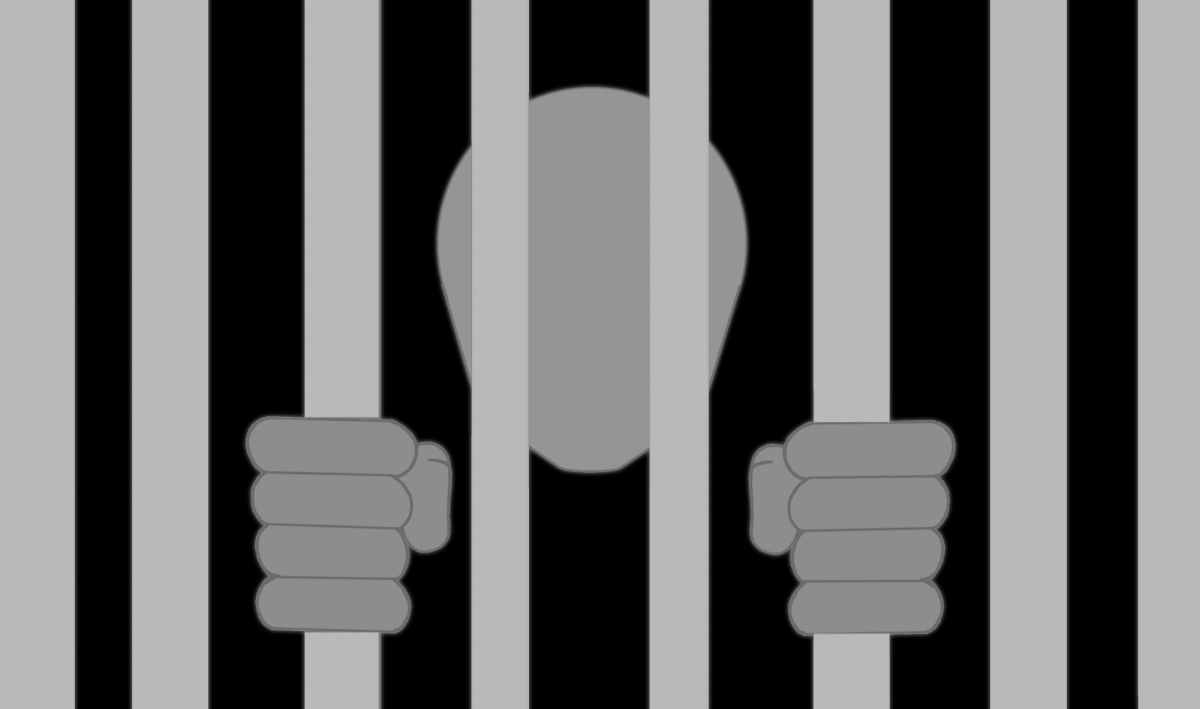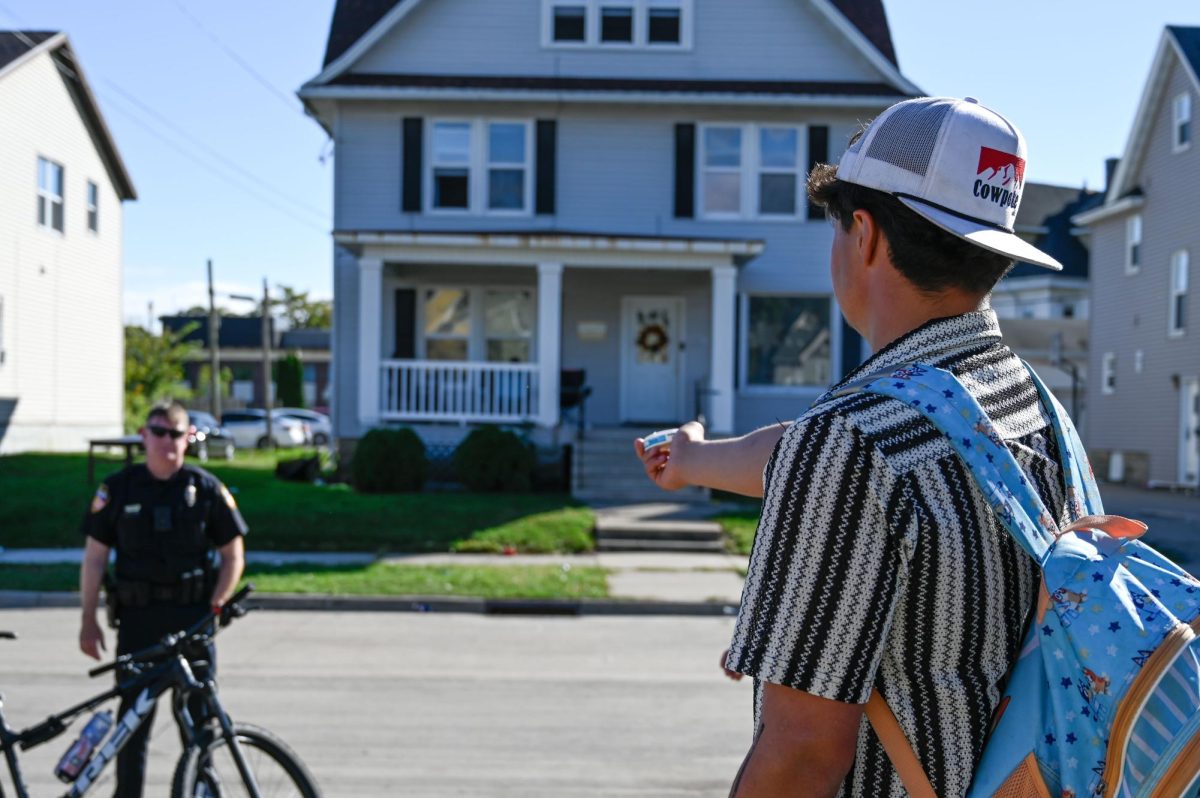One of the highlights of Bobby Ayala’s time served in solitary confinement was when he was accidentally served a Dixie cup filled with watermelon instead of his normal portion of juice.
“It was my lucky day,” Ayala said.
The former prisoner kept one of the seeds and got to work. During one of his few visits outside, he snuck in dirt wrapped in toilet paper, which he hid in his sock.
Managing to smuggle in just enough dirt to plant the seed, Ayala nurtured the plant, which sprouted and grew in his cell for weeks before it was eventually confiscated by correctional officers.
Ayala spent 27 years in the prison system, seven of which were spent in solitary confinement. One of his confinement stints was three years long.
A watermelon seed that most people would consume or throw away turned out to be a shred of hope and distraction for Ayala during his sentence in isolation.
Ayala shared this story to showcase the reality of solitary confinement alongside three other formerly incarcerated panelists in a discussion about the Wisconsin prison system in Reeve Memorial Union on Oct. 25.
The panelists, from EX-Incarcerated People Organizing (EXPO), partnered with the UW Oshkosh sociology club to talk about the impacts of solitary confinement and other issues within Wisconsin’s criminal justice system, led by people who have experienced it.
“Make no mistake, solitary confinement is oppression,” said organizer of the Fox Cities chapter of EXPO JenAnn Bauer. “It is made to break you.”
Formed in 2014, EXPO emerged from formerly incarcerated people gathering to discuss their experiences and offer support for each other.
The organization’s mission is to end mass incarceration, eliminate all forms of structural discrimination against formerly incarcerated people, and restore formerly incarcerated people to full participation in the life of our communities.
In Wisconsin, solitary confinement (sometimes referred to as administrative segregation or seg) involves holding inmates in small, concrete cells with minimal sunlight or human interaction for nearly 24 hours a day. Food is passed through a small slot in the door.
“One of the things that was most destructive for me was being in administrative confinement and not knowing when you’re going to get out,” said Dant’e Cottingham, EXPO interim associate director, who served three years in confinement.
Currently, Wisconsin allows jails to hold inmates in solitary confinement for up to 10 days. In prisons, the maximum holding period in solitary confinement is 90 days unless the corrections secretary agrees to add more.
This number was reduced from 360 days in 2015. However, inmates under administrative confinement status can be held indefinitely. The Wisconsin Department of Corrections defines administrative confinement status as “a non-punitive placement in restrictive housing for (inmates) whose continued presence in the general population poses a serious threat to property, staff, self, (other inmates), or to the secure and orderly operation of a facility.”
Cottingham said his three-year stint in confinement was extremely tumultuous.
“At some point when you do this amount of time, everything that you were using to distract yourself no longer works,” he said. “You get tired of reading, you get tired of yelling outside the door, you get tired of pushups…”
Cottingham said being isolated left him alone with just his thoughts.
“Nothing is effective to distract you,” he said. “You’re stuck with yourself. To this day, I don’t know why that shit didn’t destroy me.”
To showcase some of these effects, Cottingham shared a story of his neighboring inmate’s mental health deteriorating.
The inmate had covered his cell door window, which violates the rules of confinement, and refused to take down the covering. In response, officers entered the cell to uncover the window.
“The door opened and I could see inside the room,” Cottingham said. “I remember seeing on the wall in his cell a huge paragraph on his wall written in feces. … When he came out, he had marked his face in feces.”
Numerous studies have shown that solitary confinement has long-lasting negative effects on inmates, including extreme rage, post-traumatic stress disorder and increase risk of suicide.
Although people in confinement only make up around 6-8% of the prison population, they account for more than half of former prisoners who die from suicide, according to prisonpolicy.org.
Ayala, who spent seven years in confinement, recounted his story of dealing with trauma while in administrative confinement.
He had been reading in his cell when he heard an officer knock on the door to instruct him to get ready to meet the chaplain, who was in charge of giving religious teachings and death notices to inmates.
“(If) the chaplain wants to see you, that means someone in your family died,” Ayala said, “so I got prepared, dressed and ready on the cement concrete waiting for them to tell me who died.”
Afterward, Ayala was given a 15-minute phone call with his family, which was cut short by a message from the Department of Corrections to let him know his time was up and he was led back to his cell.
“I had the most emotional breakdown I’ve ever had,” he said. “I never got any counseling, never (saw) my parents, nobody came to talk to me after that. I was stuck.”
Former prisoner Talib Akbar, who served 20 years incarcerated, said serving time in administrative segregation was comparable to being tortured.
“Placing people in solitary confinement is a torturous situation,” Akbar said. “It’s a structured environment and they know so well what they’re doing to you.”
According to UN humans rights expert Nils Melzer, anything over 15 days in confinement is considered torture.
Akbar said solitary confinement is particularly dangerous for people with mental illnesses.
“Mentally ill people should never be put in solitary confinement,” he said. “Mentally ill people should never be put in prison. That’s what mental institutions are for.”
Akbar said he advocates for ending the use of solitary confinement by supporting a campaign called Unlock the Box.
“We just have to change this,” he said. “Let’s unlock the box.”
A common question the panelists said they received was whether or not the use of solitary confinement is ever justified.
“It’s one thing to incarcerate people,” Cottingham said. “It’s a whole other thing to incarcerate them in a way that tortures them … and that’s never okay.” “At some point … through your methods and weapons of torture, you become just as bad as the crime of the person that you’re torturing.”
Bauer added that she believes it’s important to take care of the mental wellbeing of inmates to encourage positive behavioral changes once they are released.
“I like to remind people that 95% of us are coming back home to our communities,” she said. “Do you want us to come home healthy, or do you want us to come home angry and broken?”



















